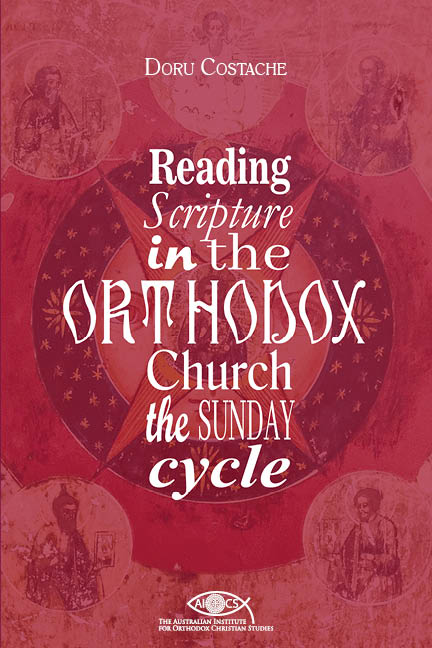The AIOCS Short Courses 2021
[Free content © AIOCS]
The Pre-Lenten Narrative: Preparatory Reflections
The second part: The Thirty-Third Sunday after Pentecost
24 February
Protopresbyter Dr Doru Costache
The scriptural readings prescribed for this Sunday: 2 Timothy 3:10–15. Luke 18:10–14.
An interpretive framework: Doru Costache, Reading Scripture in the Orthodox Church: A Diary (Sydney: AIOCS Press, 2018) 84–86.
Summaries
2 Timothy 3:10–15 Timothy must remember Paul’s endurance, faith, virtue, and love, qualities which the young bishop should resolutely strive to emulate. He should likewise be mindful of a dynamic of godliness and goodness, a sense of spiritual advancement which involves the risk of attracting persecution, and a dynamic of imposture and deception, which entails going from bad to worse.
Luke 18:10–14 Jesus told the story of two people who went to the temple to pray. The self-righteous pharisee mocked prayer by thanking God for how virtuous he was, unlike the other, supposedly sinful person. In turn, the tax collector, aware of his shortcomings, prayed truly, asking for God’s mercy. The Lord concluded by pointing out the outcomes of the two approaches. Whereas self-glorification ends in humiliation, self-abasement brings glorification from on high.
Wisdom
The second stage of pre-lenten preparation reiterates the lesson of the previous Sunday by way of a parable. To recapitulate, we learnt about the “righteous” citizens of Jericho who judged both the unjust tax collector, Zacchaeus, and the Lord who sought his company. The case of Zacchaeus, found in the next chapter of Luke’s narrative, constitutes the historical event that may have inspired today’s parable. The connection between the two passages is unmistakeable. This detail shows that the Lord found inspiration from real life events in order to provide teaching for life. By proposing a reverse reading, first of history, the encounter between Jesus and Zacchaeus, then of the story, the parable of the tax collector and the pharisee, the Orthodox lectionary makes the conclusion clearer than the Lucan narrative itself does. What matters is that by way of both story and history the Gospel teaches the same wisdom: we should peer into our own hearts and address the darkness therein, not condemn the sins of others. Like the “righteous” citizens of Jericho, the pharisee rushed to condemn a fellow human being. In turn, Jesus taught both the pharisee and the people of Jericho to be humble and compassionate, not arrogant and judgmental. This lesson is immediately relevant for the upcoming lenten journey. Lent is full of temptations. One is the pride which ascetic achievers sometimes experience, mainly through fasting. When they do not survey their own thoughts attentively, they deceive themselves that by changing diet they have become righteous and superior to others—as in the case of the pharisee, who unlike “that” tax collector fasted twice weekly and paid his dues to the temple. But this is not the worst that can happen when one’s thoughts go unsupervised. As Christ’s parable and the letter of Saint Paul suggest, the danger does not consist only in the personal failure of overconfident fasters, whose pride changes into humiliation. The dynamic of evil does not stop there, going from bad to worse. People who succumb to arrogance become judgmental then violent then persecutors of others. Just as they persecuted the Lord, the “righteous” persecuted both saints and sinners all through the ages. A lesson for Lent. A lesson for life. We should all be mindful of the path we walk.
Message
Whether or not we achieve more than others in our spiritual journey, nothing can justify the pride that leads us to judge and despise other people.
Keywords
compassion, fasting, humility, judgmental, pride
24 February 2021 © AIOCS
Please support our not-for-profit ministry (ABN 76649025141)
For donations, please go to https://www.paypal.com/paypalme/aiocsnet or contact us at info@aiocs.net


